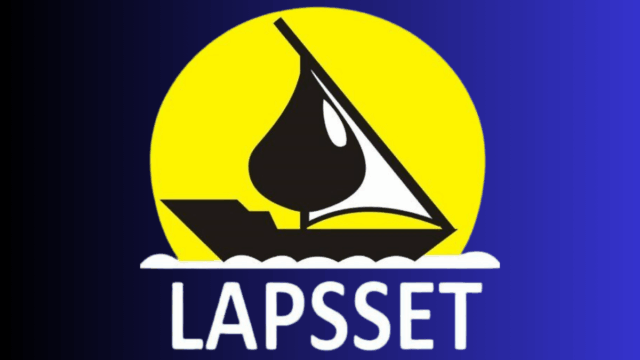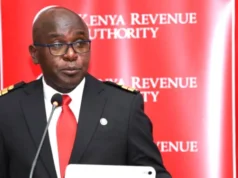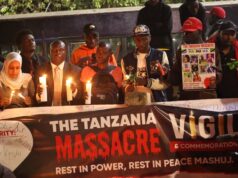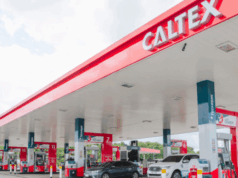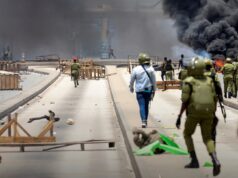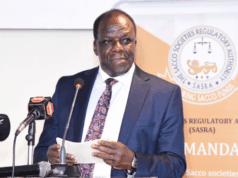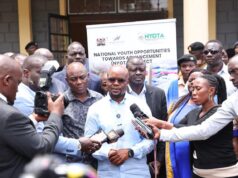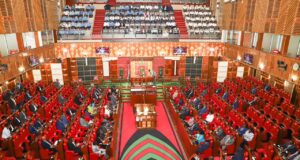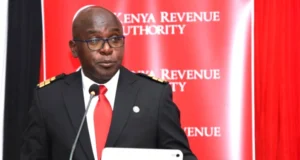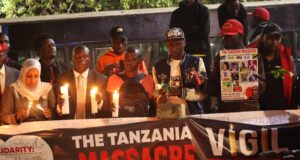Uganda and Tanzania are currently building the world’s longest heated crude oil pipeline, the East African Crude Oil Pipeline (EACOP), a five billion dollar mega project that stretches 1443 kilometers from Uganda’s Lake Albert oilfields to the Port of Tanga in Tanzania.
Once completed, EACOP will transport up to 246000 barrels of oil per day, or 90 million barrels annually. Backed by global giants like TotalEnergies which owns 62 percent, CNOOC with 8 percent, and state owned companies from Uganda and Tanzania each holding 15 percent, the pipeline is now 64.5 percent complete, with exports expected to begin in 2027.
The EACOP deal was sealed by the late President John Magufuli and President Yoweri Museveni, a strategic move that shut Kenya out. Ironically, a pipeline through Kenya would have been shorter, cheaper, and more efficient. Still, Kenya was boxed into a position of consumer, not producer or transporter. But all is not lost. Kenya can regain its footing and even outmaneuver the EACOP advantage by accelerating the Lamu Port South Sudan Ethiopia Transport (LAPSSET) Corridor project.
LAPSSET is more than just a pipeline. It is a comprehensive regional infrastructure program comprising highways, railways, airports, and an oil pipeline that will connect the Lamu Port to South Sudan and Ethiopia. It is Kenya’s most ambitious vision of regional integration and its best bet to reassert dominance in East Africa’s energy logistics landscape.
By fast tracking the oil pipeline component of LAPSSET and connecting it to oil rich Turkana and South Sudan, Kenya can provide a viable and cheaper export route not only for itself but also for Uganda. The very opportunity Uganda denied Kenya through EACOP can be reclaimed through economics and geography.
Aliko Dangote’s twenty billion dollar refinery in Nigeria presents Kenya with a unique ally. Dangote is aggressively expanding his fuel distribution network across the continent. He is already planning a strategic fuel storage facility in Walvis Bay, Namibia, with a 1.6 million barrel capacity to serve countries like Zambia, Zimbabwe, Botswana, and even southeastern DRC.
Kenya can partner with Dangote to build similar strategic reserves at Lamu, transform the port into a regional hub, and integrate his refined petroleum products into the LAPSSET corridor. In return, the Dangote refinery can use eastbound delivery vessels to carry crude oil on the return trip, solving the problem of empty backhaul logistics.
Such a strategy would create a closed loop economic system, ensuring cheaper refined fuel for Kenya and the region, a reliable export route for Kenya’s and South Sudan’s crude, and a strategic stake for Nigeria in East African energy.
Kenya has successfully pushed back before. In the early 2000s, South Africa tried to control regional internet infrastructure through the EASSy undersea cable. Kenya, sensing a power imbalance and delays, went its own way and built the TEAMS cable in partnership with Etisalat. Today, TEAMS is a backbone of Kenya’s digital economy.
That victory should remind us that Kenya does not have to play second fiddle in regional infrastructure. With bold decisions, targeted partnerships, and political will, we can redefine the narrative just as we did with TEAMS.
Unlike EACOP, LAPSSET is more than an oil pipeline. It is a multimodal logistics corridor. It will serve not just Kenya but also landlocked countries like Ethiopia, South Sudan, and even Somalia. When integrated with regional rail and road networks, and backed by strategic petroleum reserves and refinery partnerships, LAPSSET becomes a commercial juggernaut, a magnet for trade, energy, and investment.
By turning Lamu into East Africa’s oil and fuel hub, Kenya can outpace EACOP, reduce its own fuel costs, and secure energy sovereignty.
LAPSSET is not just a national project. It is a geopolitical tool. Kenya must approach it with the urgency it deserves. The pipeline component must be prioritized. Partners like Dangote must be courted. Political will must be unwavering.
If we move fast, build smart, and stay strategic, Kenya will not just catch up with EACOP, it will leapfrog it.


